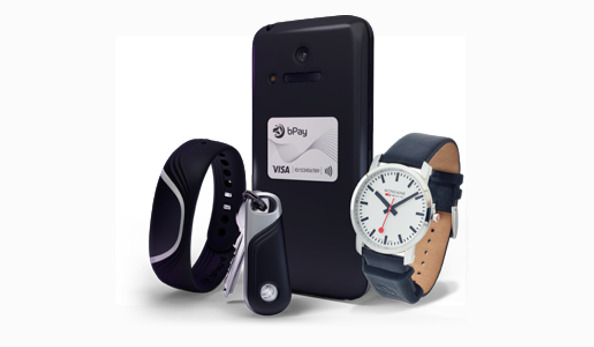Barclays is reportedly having trouble attracting users to its BPay mobile payments system and the Pingit app in the United Kingdom, due to competition from Apple Pay and other competitors, with the bank allegedly preparing to merge the two services into one.
The two Barclays-produced services have not met the same sort of reaction from consumers as that of Apple Pay and others, which has prompted a rethink from the major bank. As part of the solution, Barclays intends to bring its less popular service BPay to be under the Pingit app, consolidating the two separate services into one.
In the United Kingdom, Pingit has managed to achieve a user base of 3.6 million people, a Barclays spokeswoman advised to Bloomberg. By contrast, BPay has users "in the high tens of thousands," effectively making it a failure in a relatively crowded payments market.
"We acknowledge that Pingit has many more users than bPay, but that's because bPay has built the UK wearables category from scratch, and the category itself is still in its infancy," Barclay's spokesperson Oliver Stevenson said in a statement to AppleInsider "The reason we are merging the two services is because we want to establish Pingit as our primary mobile payments brand, and we want to give Pingit users the wearables functionality currently enjoyed by our bPay customers, and vice versa."
Introduced in the UK in 2014, before the launch of Apple Pay in the country, BpPy allowed users to buy wearable devices that could be preloaded with funds for performing contactless payments, without requiring the use of a mobile device or a credit or debit card. Barclays partnered with watch brands including Timex and Guess to create wearables using BPay.
Once merged, BPay users will use the Pingit app to manage their accounts and their accessories.
Pingit has found success in allowing users to easily send money to each other, and in the UK has a direct competitor in the form of Paypal. It does not directly compete against Apple Pay in that market, as Apple Pay Cash is not available in the UK at the moment.
The bringing together of the two services is a sign traditional financial institutions are attempting to adapt to a payments market that has become saturated with new major players, such as Apple and Google. The increase of app-based consumer banking, such as Monzo, is also making it harder for high street banks to compete, due to the app banks able to fit more easily into a user's life, rather than requiring occasional visits to a physical location to manage their finances.
Barclays CEO Jess Staley believes the banking industry will face challenges against the influx of loosely-regulated opponents, such as Apple and Amazon, declaring in October 2017 that mobile payments is "the battleground of finance over the next 15 years." Barclays has already taken steps to counter the threat to its business, by partnering with PayPal in April 2019 to explore ways Pingit and Paypal could work together.
 Malcolm Owen
Malcolm Owen






-m.jpg)






 Charles Martin
Charles Martin


 Wesley Hilliard
Wesley Hilliard
 Stephen Silver
Stephen Silver
 William Gallagher
William Gallagher

 Marko Zivkovic
Marko Zivkovic









21 Comments
Not only do you not have the same convenience and security of Apple Pay you have to pre-load? Chance of success <1%.
GREAT!!
I bet there is an article somewhere of a CEO mocking Apple and laughing about ApplePay calling it a failure. Happens every damn time.
Apple really needs to show people how secure ApplePay is also. I know iKnockoff users who think SamsungPay is the same thing. It's not. If people understood that ApplePay is the most secure payment method in the world, we would have even more users and retailers on board.
What’s interesting is there is a movement to stop taking certain credit cards (Visa) because of high fees at retailers.
Visa is also raising rates...
They better watch out or they’re going to lose out to Apple Pay.
What’s not clear is how Apple Pay makes Apple money...
I wish some consultancy would pay me a few mil to tell these finance / retail corporations that it's effin' insane to try to compete with the major tech companies in this space.